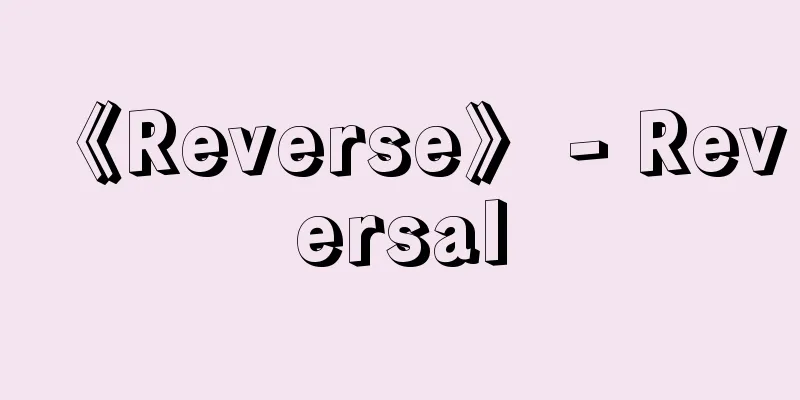Repayment - Bensai

|
It refers to the act of the debtor or other person that realizes the performance that is the content of the debt. For example, paying a debt or delivering the object of a sale would be examples of this. The person who must make the performance is usually the debtor, but the Civil Code also allows for performance by a third party. Since the emphasis of a claim is on the result of the performance being realized, there is no problem in allowing performance by a person other than the debtor. However, if performance by a person other than the debtor is allowed, a liquidation relationship will be created between the payor and the debtor, and the payor will have a right of reimbursement against the debtor. Therefore, in order to secure such a right of reimbursement, the Civil Code prescribes a system of so-called subrogation of the payor, in which the payor substitutes for the creditor and succeeds to the creditor's claim and the associated security (Articles 499, 500, and 501). [Toshio Takeuchi] Place of repaymentUsually, the place of performance is determined by the explicit or implicit intention between the parties and the customary practices of the transaction. However, since there are cases where the place of performance is not determined by the above-mentioned standards, the Civil Code provides the following supplementary standards: (1) In the case of a debt to deliver a specific thing, the debt is to be paid at the place where the thing was located at the time the debt arose (Article 484, first paragraph), and (2) In the case of other debts, the debt is to be paid at the address of the creditor at the time of payment (Article 484, second paragraph). [Toshio Takeuchi] Cost of repaymentThe Civil Code provides that the costs of performance shall be borne by the debtor unless otherwise agreed (Article 485, main text). In other words, the debtor cannot escape responsibility for delay unless he or she provides performance at his or her own expense. However, if the debtor moves his or her domicile or the debt is assigned, the costs of performance may increase, but in such cases the increased amount shall be borne by the debtor (Article 485, proviso). [Toshio Takeuchi] Payment to a person without the authority to receive paymentIn addition to the creditor, there are also persons who have the authority to receive payment, such as the creditor's agent and the pledgee of the credit (Article 366 of the Civil Code), but generally, persons other than the creditor cannot receive payment, and therefore payment made to such persons cannot extinguish the credit. However, the Civil Code allows the following exceptions in order to protect the creditor's credibility and ensure the safety of general transactions, and in accordance with the actual needs of the transaction. (1) Payment to a quasi-possessor of the credit A quasi-possessor of the credit is a person who has the appearance of a creditor. For example, an apparent heir or a person who bears a postal savings passbook and its transaction seal would be an example of this. If the debtor makes a payment in good faith, thinking that this person is the creditor, this is valid, and the debtor will not be forced to make a double payment even if the true creditor demands it (Article 478). However, even if the debtor makes a payment in good faith, if there is negligence, the payment will be invalid. (2) Payment to the bearer of a receipt Since the bearer of a receipt is a person who appears to have the authority to receive payment, the debtor who made a payment to this person in good faith and without negligence is discharged from liability (Article 480). However, if the creditor provides evidence to the contrary and proves the debtor's bad faith or negligence in not knowing, the debtor will not be discharged from liability (Article 480, proviso). Furthermore, the receipt must be authentic, i.e., it must be prepared by the creditor or his/her agent. Except for the cases mentioned above, generally, payment made to a person without the authority to receive payment is invalid and may be claimed for return as unjust enrichment. The debtor must make a new payment to the creditor. However, if a person without the authority to receive payment uses the received property or money for the benefit of the creditor, the claim is extinguished to the extent that the creditor has benefited (Civil Code Article 479). [Toshio Takeuchi] Appropriation of repaymentWhen there are multiple debts of the same kind to a creditor, and the debtor's contribution is not sufficient to extinguish all debts, designating a specific debt to be used to repay the debt is called appropriation of performance. Debts can be secured or unsecured, or have a time limit or no time limit, and the decision of which debt to use as repayment depends on the interests of the debtor and creditor. This appropriation of performance can be determined by the designation of the parties, but the Civil Code has supplementary provisions for cases where there is no designation (Articles 488 to 491). [Toshio Takeuchi] Source: Shogakukan Encyclopedia Nipponica About Encyclopedia Nipponica Information | Legend |
|
債務の内容たる給付を実現させる債務者その他の者の行為をいう。たとえば、借金を支払うとか、売買の目的物を引き渡すというのがこれにあたる。弁済をなすべき者は、通常は債務者であるが、民法はさらに第三者による弁済をも認めている。債権は、給付の実現される結果に重きを置くものであるから、債務者以外の者による弁済も認めて差し支えないわけである。もっとも、債務者以外の者による弁済を認めることになると、その場合には、弁済者と債務者との間に清算関係が生ずることとなり、弁済者は債務者に対して求償権をもつこととなる。そこで民法は、このような求償権を確保するために、弁済者は債権者に代位して、その債権およびこれに伴う担保を承継するという、いわゆる弁済者の代位の制度を規定している(499条・500条・501条)。 [竹内俊雄] 弁済の場所通常、弁済の場所は、当事者間の明示または黙示の意思表示や、その取引についての慣行で定まることが多い。しかし、前記のような標準によっては定まらない場合もありうるので、民法は、これにつき補充的に次のような基準を設けている。(1)特定物引渡債務の場合については、債権発生当時、その物が存在した場所(484条前段)、(2)その他の債務の場合には、弁済時の債権者の住所(484条後段)で、それぞれ弁済すべきものとされている。 [竹内俊雄] 弁済の費用民法は弁済の費用につき、特約のない限り債務者が負担するものと規定している(485条本文)。すなわち、債務者は、自分の負担で弁済の提供をしなければ、遅滞の責任を免れないこととなる。もっとも、債権者が住所を移転したり、あるいは債権が譲渡されたりすると、弁済の費用が増加することもありうるが、このような場合には、その増加額については、債権者が負担すべきものとされている(485条但書)。 [竹内俊雄] 弁済受領権限のない者への弁済債権者以外にも、債権者の代理人や債権質権者(民法366条)などのように弁済を受領する権限を有する者もあるが、一般的には、債権者以外の者は弁済を受領することができず、したがって、この者になした弁済は、債権を消滅させることができない。しかし、民法は、弁済者の信頼を保護して一般取引の安全を図り、かつ取引上の実際の必要性に応じて、次の例外を認めている。(1)債権の準占有者への弁済 債権の準占有者とは、債権者らしい外観をもった者をいう。たとえば、表見相続人や郵便貯金通帳とその取引印などの持参人がこれにあたる。債務者がこの者を債権者だと思って善意で弁済すれば、これが有効となり、真の債権者からの請求があっても、二重払いを強制されることはない(478条)。ただし債務者が善意で弁済したとしても、過失があった場合はその弁済は無効となる。(2)受取証書の持参人への弁済 受取証書の持参人は、弁済受領権限がありそうな外観をもつ者であるから、善意無過失でこの者に弁済した債務者は免責される(480条)。ただし、債権者が反証をあげて、債務者の悪意または知らなかったことに対する過失を立証すれば、債務者は免責されない(480条但書)。 なお、受取証書は真正なものでなければならない。すなわち、債権者またはその代理人の作成したものでなければならないものと解されている。 前述したような場合を除くほか、一般に弁済受領権限のない者に対する弁済は無効であり、不当利得として返還請求できることとなる。債務者は、改めて債権者へ弁済しなければならない。しかし、もし、弁済受領権限のない者が、受領した物または金銭を債権者の利益のために使った場合には、債権者が利益を受けた限度で債権の消滅が認められている(民法479条)。 [竹内俊雄] 弁済の充当債権者に対する同種の債務が複数あって、債務者の提供したものでは、全債務を消滅させるに十分でない場合、特定の債務を定めてその債務の弁済にあてることを弁済の充当という。債務のなかには担保のついたもの、つかないもの、期限のついたもの、つかないものなどがあり、どの債務の弁済にあてるかは、債務者・債権者の利害に関することとなる。この弁済の充当は、当事者の指定で決定できるが、この指定がなかった場合につき、民法は補充的な規定を設けている(488条~491条)。 [竹内俊雄] 出典 小学館 日本大百科全書(ニッポニカ)日本大百科全書(ニッポニカ)について 情報 | 凡例 |
Recommend
Hugo Hassinger
1877‐1952 Austrian geographer. Studied under A. Pe...
Miasa [village] - Miasa
A village in Kitaazumi County in northwest Nagano ...
Shibata Kyuou
A Sekimon Shingaku scholar from the late Edo peri...
Consumerism - Consumerism
Consumerism. Refers to the claims and movements t...
Ravenna - Ravenna (English spelling)
The capital of the province of Ravenna in the Emi...
Taricha torosa (English spelling) Tarichatorosa
…Their limbs are developed enough to walk slowly ...
Fragaria vesca (English spelling)Fragariavesca
…[Masao Yamashita]. … *Some of the terminology th...
Cavazzoni, G.
...This technique was inherited by instrumental f...
Kalff, D.
…It is a psychotherapy technique that was first i...
Ishii Style
The name of a style of Noh otsuzumi performers. Th...
Wang Suk
A Chinese policy maker and scholar from the Three...
Unai virgin - Unai maiden
...Written by Kan'ami. The shite is the spiri...
Laws on the Counterfeiting, Alteration and Imitation of Currencies, Banknotes, and Securities Circulating in Foreign Countries
…The crimes of counterfeiting, altering, and usin...
nival climate
…a type of nival climate in which the average tem...
Hurdles
...The 100m is run on a straight course, and star...









